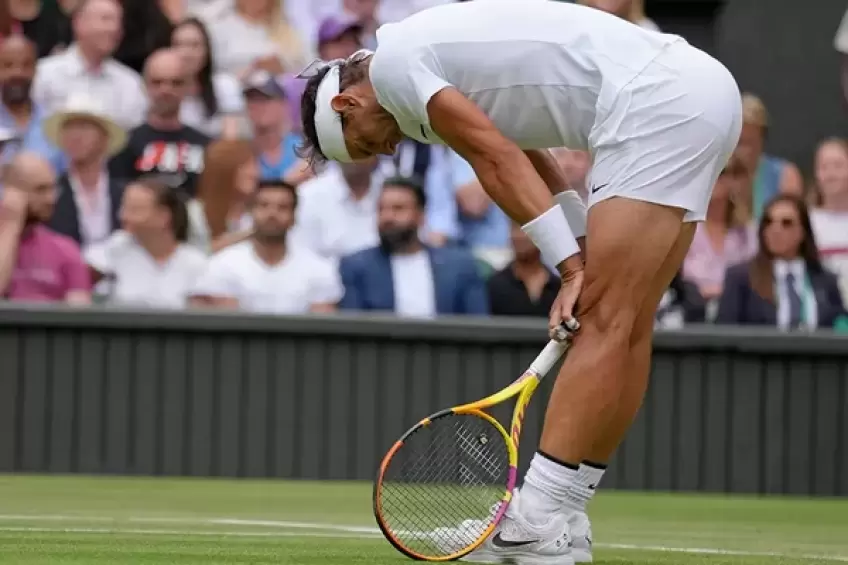I was consulting recently with an ambitious 16-year-old (let’s call him Larry) who had faltered badly in his last tournament. Larry told me he had moved up in the rankings, but was starting to feel the pressure. Against an early-round opponent, he lost the fi rst set but was two points away from evening the match in the second.
Wanting to end the game, he began to think too much, tense up and rush. In the blink of an eye, the game was gone. Shaken by his multiple nervous mistakes, he fumbled the next three games and the match went by in a blur. Larry was suddenly out of the tournament and into the consolation draw.
Discouraged, he lost to his next opponent, 6–1, 6–1. His hopes of bettering his ranking dashed, Larry saw this tournament as a total disaster. But there was much to be gleaned from the experience. Why did this happen, and how could Larry avoid a recurrence? To be frank, it happened because of Larry’s lack of courage.
And I don’t say this because he choked while serving for the set and blew a bunch of set points. I say it because of what happened after the choke. Choking is a normal phenomenon—everyone does it, even Roger Federer and Serena Williams.
The difference is how players recover from it. Courageous players accept their failures without wincing, whining or feeling sorry for themselves. They are prepared to make rational adjustments as needed and move on with a positive attitude.
They realize that choking is just a part of the game. Like the pros, you must accept it quickly, without drama, and keep chugging along. Andy Roddick provided a wonderful example of this in the 2009 Wimbledon final, when he lost to Federer in fi ve sets.
Going in to the major, Roddick had shed 15 pounds in order to shore up his movement, one of his weaknesses. In the final, Roddick was playing devastatingly well, moving easily to the ball, hitting his backhand—another historic weakness—with confidence, coming to net opportunistically and backing it all up with his thundering aces.
He won the first set handily and continued his momentum into the second, reaching set point. But Federer wasn’t going down easily. On Roddick’s fourth set point, the American took control and came to net on a approach shot that was a near winner, wide to Federer’s forehand.
Federer flicked back a soft, floating return. Roddick only had to poke this sitter into the open court, and the two-set lead was his. It was almost easier to make this shot than to miss it, but he missed it—badly. In a flash, Roddick’s opportunity vanished.
Federer roared back to win the set in a tiebreaker. He then took the third set in another tiebreaker. Rather than dogging it, Roddick went after Federer aggressively to win the fourth set 6–3 and slug it out in a marathon fifth.
Roddick held serve to stay in the match 10 times in a row before finally yielding at 14–15. Yes, he lost, but not because he wilted. Roddick walked off the court bent but not broken. Tennis is far more than a test of strokes, strategy and athleticism.
It is also a test of character. You are out there by yourself, and nobody is going to save you if you falter. You must have the courage to absorb whatever mental punishment the game inflicts without flinching, and if you do— win or lose—you can come off the court with the pride of either winning, or at least not having beaten yourself.
